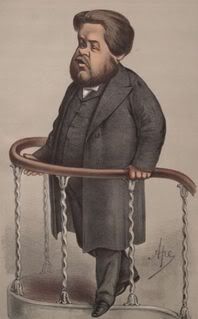
This post is more difficult to write than my last two about radiometric dating. If you read those posts, you remember I said that secular geologists are uniform in their support of radiometric dating. This is true, but though I've said the evidence is very convincing, there are a lot of samples and evidence that we normally don't hear about, that are not factored into the equation of the old-earth samples, that do not agree with them. These are usually not taken seriously by scientists, who dismiss them as anomalous.
1. C-14 dating sometimes yields inaccurate dates. Christian Answers at, http://www.christiananswers.net/q-aig/aig-c007.html, says the following:
"plants discriminate against carbon dioxide containing 14C. That is, they take up less than would be expected and so they test older than they really are...Second, the ratio of 14C/12C in the atmosphere has not been constant—for example, it was higher before the industrial era when the massive burning of fossil fuels released a lot of carbon dioxide that was depleted in 14C. This would make things which died at that time appear older in terms of carbon dating."
The article goes on to say that C-14 dating is cross-referenced with history to obtain correct dates on most carbon dated items. Thus, there is uncertainty in C-14 dating, though it is a helpful dating tool.
2. Dating of radioactive rocks (K-Ar and the like) seem to have less inconsistency than C-14, but still sometimes yield dates that appear to be off the mark. Christian Answers notes one such example:
"Researchers applied posterior reasoning to the dating of Australopithecus ramidus fossils.[10] Most samples of basalt closest to the fossil-bearing strata give dates of about 23 Ma (Mega annum, million years) by the argon-argon method. The authors decided that was “too old,” according to their beliefs about the place of the fossils in the evolutionary grand scheme of things. So they looked at some basalt further removed from the fossils and selected 17 of 26 samples to get an acceptable maximum age of 4.4 Ma. The other nine samples again gave much older dates but the authors decided they must be contaminated and discarded them. That is how radiometric dating works. It is very much driven by the existing long-age world view that pervades academia today."
The conclusion in clear, the fossils bore the brunt of the weight in this dating of an ancient hominid. So, it is true that most dates off the mark are corrected for by scientists who look for evidence that is more in accord with their worldview. How much this happens is up for debate. Geologist John Woodmorappe, an ardent Creationist makes a career of documenting "adjusted evidence" like that in the paragraph above.
While almost all secular geologists form a consensus about the age of earth's rocks and fossils, it is clear that not everyone agrees. Ben Stein has made a good case in his movie "Expelled" that academia does not always form conclusions based on facts but on a prior scheme that forms the facts around a specific conclusion to be reached. That said, it still seems the arguments for radiometric dating have strong validity, though future discoveries and continued research could change things.




































